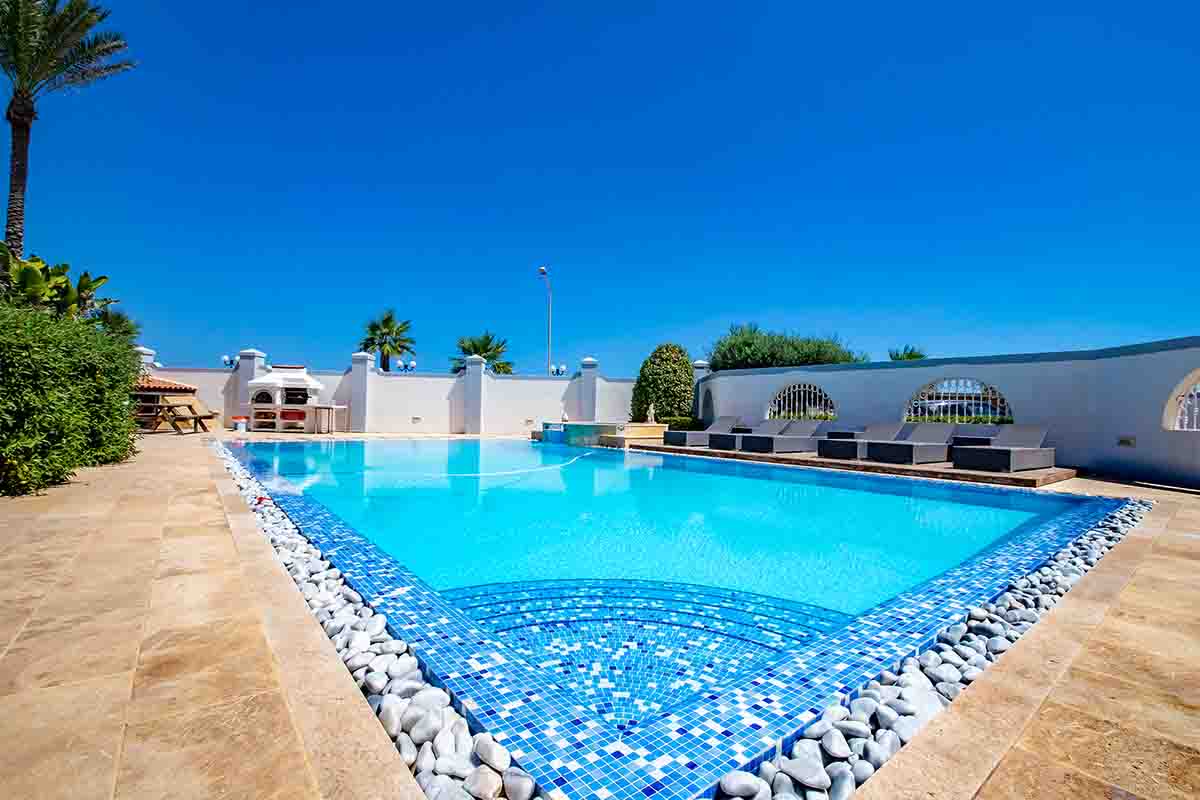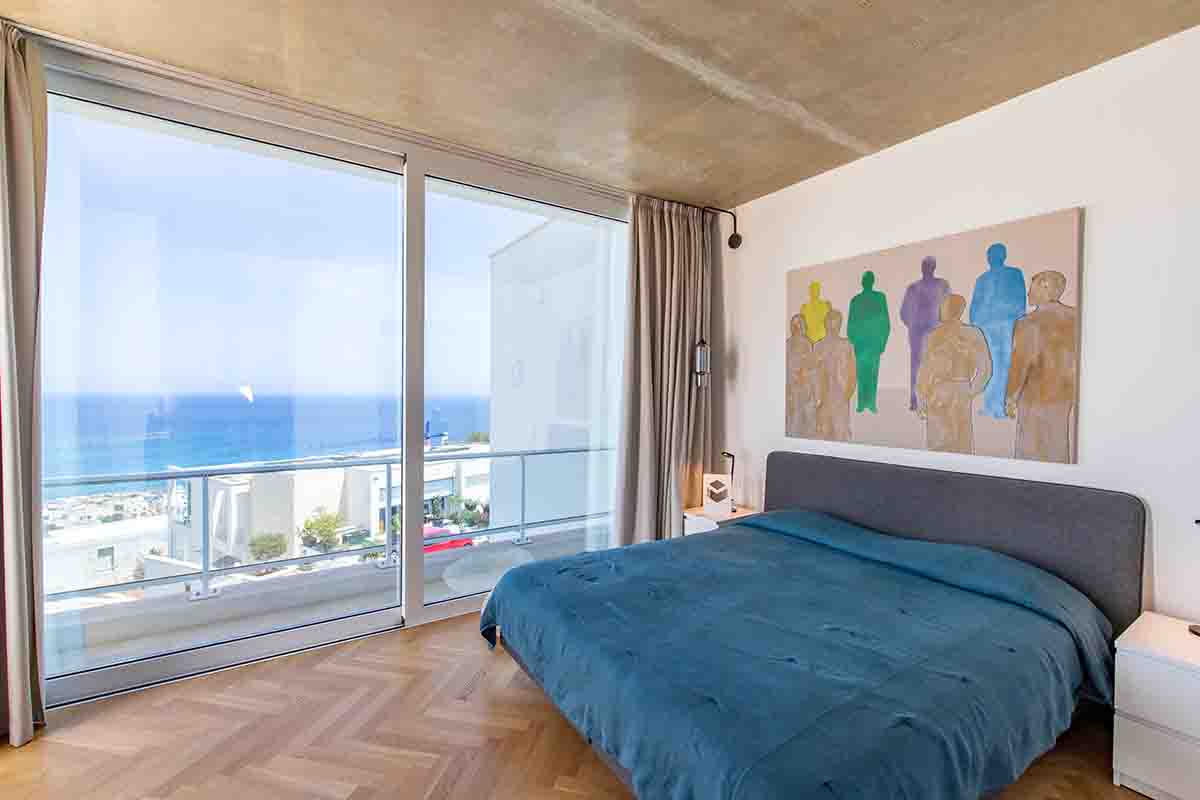A plethora of investors are closely supervising Malta. It has a strong expat community, the economy is booming, and the CBI and RBI programs require investing in real estate.
All this means Malta has a dynamic real estate with strong investment returns for those willing to invest in the market.
Find a home that fits your needs and of your family is a must in Malta. For its size, the country has a deeply diversified market, with luxurious seaside properties, comfortable villas, and downtown apartments close to the business centers in Valletta.
You can buy a luxurious villa at a walking distance from some of the more gorgeous heavenly beaches of the Mediterranean, at a fraction of their cost in Southern France or Greece.
What if you already have a home in Malta or do not want to relocate there? Well, the real estate market is booming and offers impressive options for investors willing to invest in the real estate business for wealth management purposes.
However, investing in real estate in Malta has its particularities. Buying and selling property has some specific taxes, and your nationality may be a factor to consider regarding the procedure for buying property in Malta.
But it is worth the bet. The real estate prices can go up as much as 15 % per year, which is terrific for investors. Malta real estate is widely considered as one of the best investments you can make across the EU. The market isn’t growing because the government eased conditions for buying properties or for getting credit. The rise is due to the overall economic growth of Malta, fueled by its sound macroeconomic policies, job creation, and an influx of expats.
Plus, we work with the single-best real estate agency in Malta with over 35 years of experience in the island and has over 30,000 properties in its database from which you can choose.
After this overview, where should you buy real estate in Malta, and what are the best investments?
There are plenty of brand-new furnished apartments in Special Designated Areas (more on that ahead), which are the best areas for foreign investors to get into the real estate markets. Some of them are in Valletta top suburbs such as Sliema and Gzira, which has seen the highest rises in prices in the last few years. Some of them also have luxury complexes, which are the favorites for those applying to the RBI and CBI programs.
Nonetheless, one may ask: is Malta amid a real estate bubble? That is a fair question.
One may say that prices are being inflated because the demand is outpacing a limited supply. That is partially true. The island is incredibly densely populated, and Valletta does not have much more space where to build, but still, most of the largest companies are in the city.
Homeownership in Malta sits at 80 %, which means that those willing to sell may obtain significant revenues. Thus, speculation may be getting off-limits and inflating a real estate bubble.
However, on the other hand, Malta has a meager unemployment rate that does not even reach 4 % and a ton of skilled expats living on the island. The island is seeing an unprecedented economic development fueled by a pro-business government that is applying a stable macroeconomic policy, a diversified industry, and a substantial growth of the financial services industry.
Real estate bubbles are usually driven by dreadful mortgage lending policies conducted by banks. That is what happened in the US during the 2008 financial crisis.
That is not the case with Malta. Banks usually require a down payment between 10 % and 30 % of the mortgage loan.
However, in the next few years, we will probably see a minor decrease in the price growth rate in the Special Designated Areas unless the government reduces restrictions for foreign investors, which could lead to another boom.
How to buy property in Malta
- Price
- Ground rent (if any)
- Deposit
- Payment terms
- Any works to be undertaken by the owner
- Any extras included in the price, such as furniture
- Date of the final contract (usually 3 months after the Promise of Sale)
At this point, you must make a deposit with the notary or agent equivalent to the 10% of the purchase price plus a 1% provisional duty from the 5% stamp duty.
Then, you must comply with the following steps:
- The notary conducts due diligence over the legal title of the property
- The final agreement is signed, and the buyer pays for the property
- Seller pays the taxes he may owe for the property
- Buyer pays the remainder of the stamp duty and the notary fee
These arrangements are temporary or permanent. The land that is sold without that condition is called freehold land. Ground rent can be the same every year, or the contract can set it out on a schedule. According to the law, a buyer can release from permanent ground rent by paying the seller 20 times the annual ground rent.
Now, what should foreigners know about acquiring property in Malta? The government implements a particular set of rules over foreigners to even the demand across the country.
If you are an EU citizen that has not lived in Malta for the past five years, certain restrictions apply:
- You must receive an Acquisition of Immovable Property Permit for a second home, including vocational real estate. There are no restrictions for EU citizens purchasing a first home.
- That permit only allows you to purchase apartments of maisonettes of at least €121k or townhouses and villas of at least €203k.
Similar conditions apply for non-EU citizens in Malta. However, all non-EU nationals must apply for an AIP permit for all property purchases they make, even primary residences.
To get an AIP, applicants must follow this procedure:
- Complete the application form
- Attach a copy of the notarized promise of sale with two passport-sized photos, and a copy of your passport
- Pay the fee (€233)
- The permit is issued in around a month
However, if you buy a property with an AIP, there are further conditions:
- They cannot be rented out
- They cannot be divided for subletting and must be used as a residence for the applicant and his family
- It can only be used as a residence
You see all this, and you are probably wondering: then what’s the point on investing in real estate in Malta if there are so many restrictions?
Special Designated Zones
This is when Special Designated Areas come. They are developments with a mixture of residential and commercial spaces that were built to give new life to zones that were not in much use and meet the demand for homes and offices driven by professional expats relocating in Malta. In these areas, there are no restrictions on buying; foreigners can buy as many properties as they want and can rent them. The government frequently adds new SDAs to its list, meaning there are plenty of opportunities in them.
- Portomaso Development, St. Julians
- Tigné Point, Tigné
- Tas-Sellum Residence, Mellieha
- Madliena Village Complex
- SmartCity
- Fort Cambridge Zone, Tignè
- Ta’ Monita Residence, Marsascala
- Pendergardens, St. Julians
- St Angelo Mansions, Vittoriosa
- Vista Point, Marsalforn
- Fort Chambray, Ghajnsielem
- Kempinski Residences, San Lawrenz

Tax residency through real estate investment
One of the most attractive qualities of living in Malta as an expat is that you can gain tax residency in the country. Malta makes a distinction between tax residency and domicile. You can be a Maltese tax resident if you are accepted into one of the residence or citizenship schemes. An individual is considered to have their tax domicile in Malta if they are permanently settled there. Generally, your hometown is considered your tax domicile even if you move to Malta.
- Income generated in Malta
- Capital gains derived from Malta
- Foreign-sourced income remitted to Malta
Plus, you will not have to pay the regular 35% top income tax rate. If you become a Maltese tax resident under one of its RBI and CBI programs, you will pay a flat 15% income tax rate on your Maltese-remitted income.
Further, Malta does not have inheritance, wealth, or gift taxes. If you want to know more about Malta’s residency and citizenship programs, read our section here.
Property taxes and duties
Malta does not have an annual property tax. However, it applies taxes over property transfers in two forms. As we mentioned, there is a stamp duty tax of 5 %, of which a fifth (1 %) must be paid when signing the promise of sale. However, in some instances, buyers pay a reduced rate:
- If it is the buyer’s first real estate purchase (worldwide), the first €150k of the purchase is exempt. Only above that the 5 % duty is paid.
- Properties located in Urban Conservation Areas are subject to a reduced 2.5 % stamp duty.
- Properties in Gozo (one of the three islands of Malta) have a 2 % stamp duty.
Property sellers pay an 8 % withholding tax over the purchase price. This rate has a few exceptions:
- If the seller bought the property before 2004, they must pay a 10 % withholding tax.
- Property bought to build a principal residence from scratch and sold within three years is taxed at 2 %.
- If the property is in an Urban Conservation Area, the tax rate may be reduced to 5 %.
- Certain transfers made within five years of the property acquisition qualify for a 5 % tax.
What can we do for you?
Mundo's corporate group has over 25 years of offering the best CBI and RBI services in the world. This group has a firm that is the largest CBI provider in the Caribbean and our experience has helped us build an unparalleled network of experts. One of these is one of the most reputable CBI and RBI providers in Europe, Discus Holdings.
And our partners work in close association with one of the best real estate agency in Malta, with over 35 years of experience and with plenty of CBI and RBI eligible properties available.
For the citizenship program, you must invest in a property with a value of at least €350,000 or lease a residential property for €16,000 per year.
For the residency program, you must acquire a personal residence for at least €270,000 or rent a property for €10,000 per year or more.

Our partner is the friendliest real estate agency in Malta with over 30,000 properties available, from downtown flats to seaside villas. Plus, they have 17 branches across Malta and over 150 experienced property agents.
They have properties available in all special designated zones and they applicable properties for the CBI and RBI programs.
If you want to immerse in the downtown life, we can help you. If you want to relax by the beach, we have properties for you. If you want the calm and privacy of Gozo, we have what you are looking for.
Contact us right now, and we will find the ideal property for you.
$170,000
$2,500,000
$350,000
$1,400,000
$395,000
One of the best options for those who choose to move to another country is and has always been citiz...
Breathtaking beaches, unmatched beauty, great weather, and biodiversity are only some of the charact...
Many things attract tenants and short-term renters to a building. Besides location and the number of...
Half a century ago, Singapore was a small port city with limited resources and uncertain prospects. ...
In search of the best banking options, we typically look at Caribbean jurisdictions or countries tha...
Sometimes a single document can determine the fate of entire generations. A trust can be a highly pr...



.png.small.WebP)


.png.small.WebP)


.png.small.WebP)
